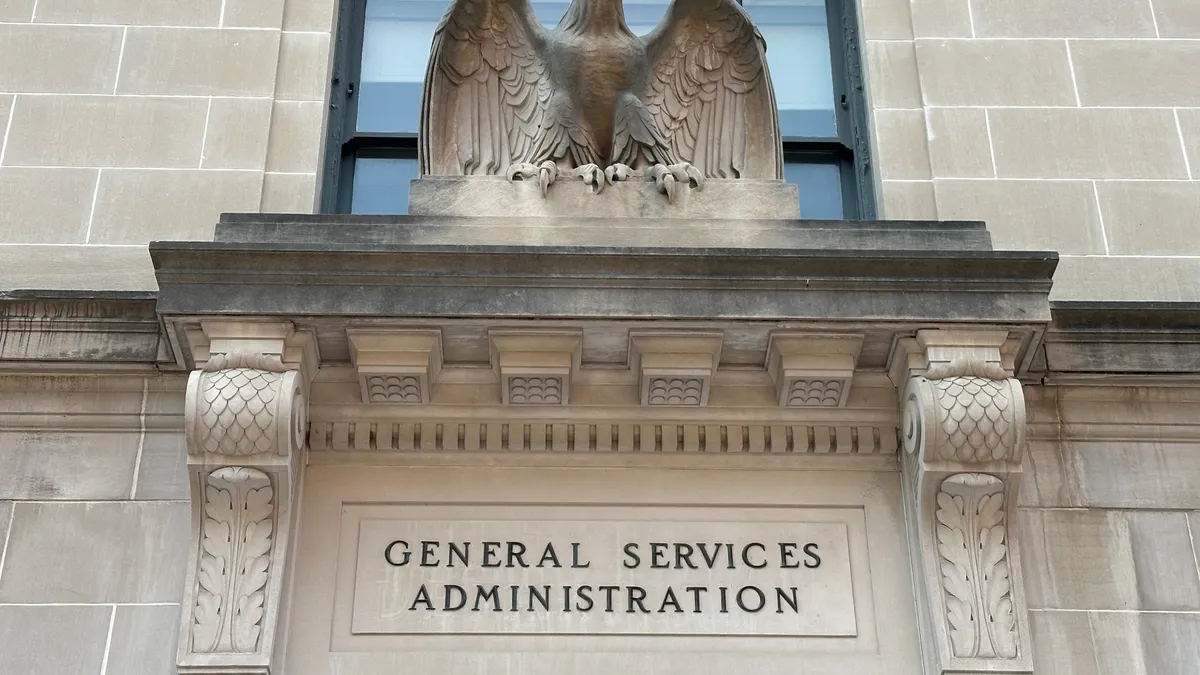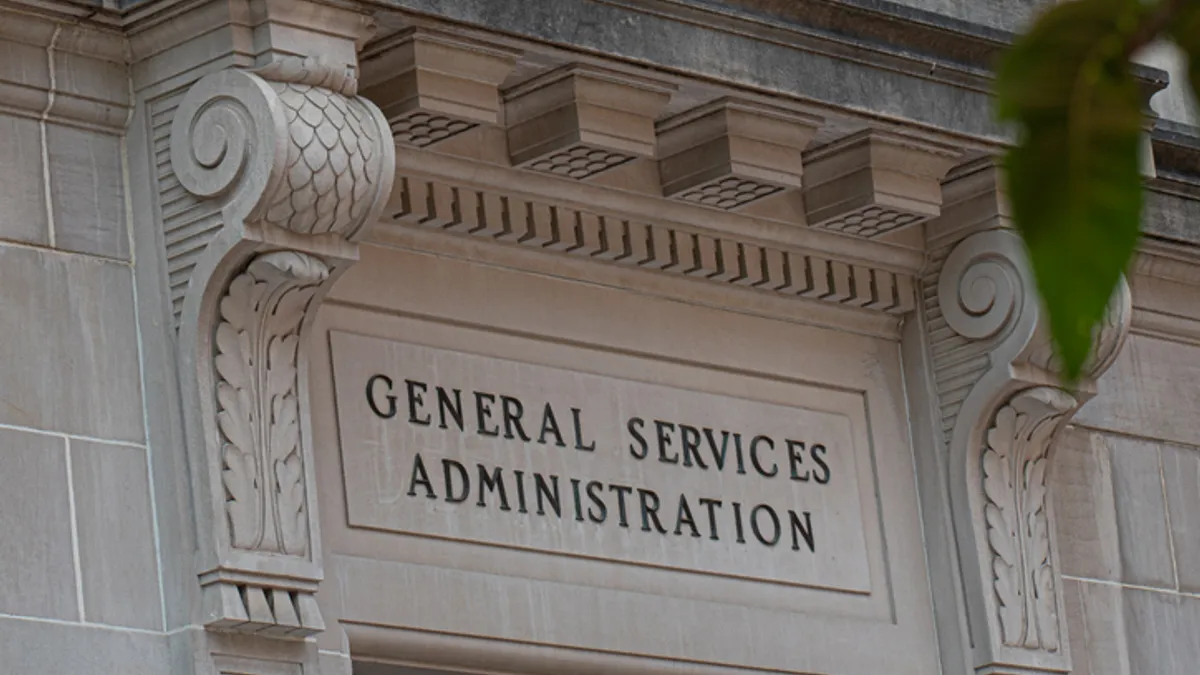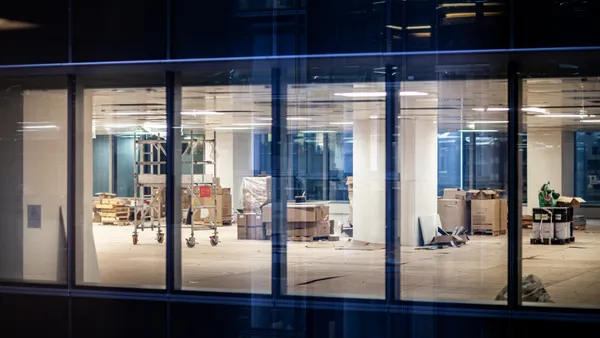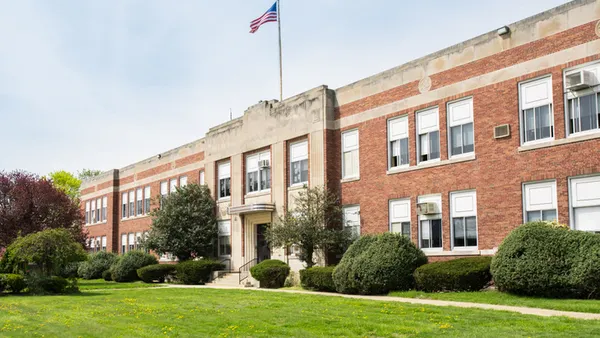Dive Brief:
- A package of bills aimed at addressing the federal government’s inefficient use of office space has passed the U.S. House Transportation and Infrastructure Committee.
- The bills would tighten oversight of the U.S. General Services Administration’s capital projects and require monthly updates on occupancy and actual utilization rates, as well as annual reporting, in occupancy agreements, according to a Nov. 15 news release from the committee.
- Pointing to agencies that use just 9% of their office space capacity, committee Chairman Sam Graves highlighted in the release the importance of bipartisan solutions to consolidate federal space, reduce waste and save taxpayer dollars.
Dive Insight:
The federal real estate portfolio has lacked consistent benchmarks for better space utilization. At a Senate Environment and Public Works Committee hearing in September, senators called for uniform measures and strategies that effectively align space with future needs. The U.S. Government Accountability Office, which found in a survey earlier this year that 17 of 24 agencies are using less than 25% of their headquarters buildings, has recently recommended that the Office of Management and Budget take the lead in creating federal space utilization benchmarks. Since that hearing, the GSA has said it seeks to shrink its portfolio by 3.5 million square feet by shedding federal properties. Against that backdrop, T&I Committee lawmakers introduced the bills earlier in November.
In addition to adding annual reporting requirements to occupancy agreements the GSA signs with tenant agencies, HR 6241, the Federal Use it or Lose it Leases Act, would have GSA establish written procedures that compel agencies to relinquish office space if the actual utilization rate falls below 60% for six months within any 12-month period. The bipartisan bill would also apply to agencies with independent leasing authorities, mandating that they report the utilization rates of their leases to their respective oversight committees.
Another bill reforms the 2016 Federal Assets Sale and Transfer Act, which encourages the identification and sale of unused federal properties. This bipartisan bill requires the Public Buildings Reform Board to submit a report to Congress listing federal properties that should be sold. It also allows agencies to receive sale proceeds sooner than the existing law allows.
HR 6260, the Federal Oversight of Construction Use and Safety Act, mandates that Congress be notified if the costs of a GSA capital project increase by 5% and that Congress approve an amended prospectus with utilization data and consolidation plans if cost increases exceed 10%. The FOCUS Act and a second bill in the package, HR 6261, also address crime in and around public buildings and its impact on the buildings’ maintenance and use.
Separately, HR 6254, the Public Buildings Accountability Act of 2023, requires a GAO report that reviews and accounts for Public Buildings Service personnel, in-office attendance, historical staffing numbers, costs and an examination of the Federal Building Fund’s building operations account.
“While House leadership ultimately controls the voting schedule, I think there’s a good chance that we could see some of these bills called up for a House vote sometime in the near future,” a T&I Committee spokesperson told Facilities Dive. Federal office space underutilization is “a drag on agency and government efficiency and a waste of taxpayer dollars. Cutting government waste and improving its efficiency are House Republican goals, so we will work with them and members across the aisle on these bills to ensure they begin moving forward as soon as possible,” the spokesperson said.













